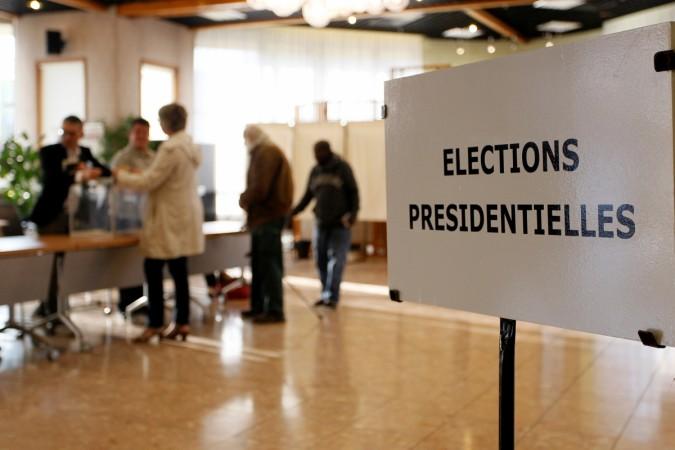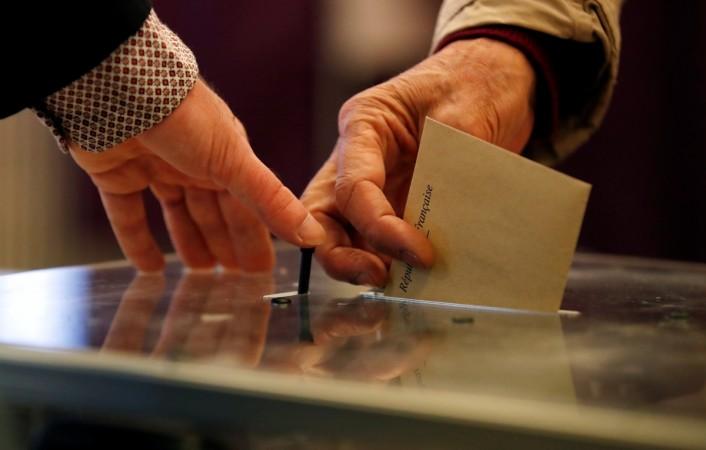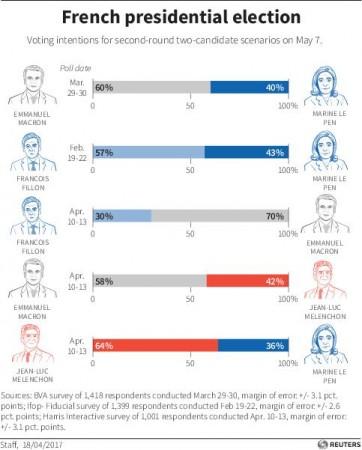
French residents woke up early on Sunday, April 23, to cast their ballots for the country's closely-contested presidential elections this year, amid tight security. The security in the country heightened after a terror attack in Paris' Champs Elysees, three days prior to the polls, which resulted in the death of a policeman.
Around 50,000 police officials and 7,000 soldiers have reportedly been deployed across the country after Thursday's attack by a convicted offender. A note defending the Islamic State of Iraq and Syria (ISIS) group was found near his body.
A total of 11 candidates are contesting in the first round of the French presidential elections, including members of far-left and centrist and far-right parties. The top two contenders to get the highest votes on Sunday will be eligible to contest for the final round of the elections on May 7, 2017.
Nearly 47 million French voters on Sunday will decided whether to support a pro-EU centrist newcomer Emmanuel Macron; a scandal-ridden veteran conservative François Fillon who wants to slash public spending; a far-left eurosceptic admirer of Fidel Castro, Jean-Luc Mélenchon or elect France's first woman president far-right leader Marine Le Pen, to shut borders and ditch the euro, Reuters reported.

The candidates have provided varying and extreme accounts of their stance towards key issues in this year's elections including the European Union's membership, immigration, economy, security, French identity and the Euro currency.
Polls state that the top two contenders of the race are touted to be Macron and Le Pen, with the former leading by some points. The elections, however, are very closely contested and the results of the first round of polls can change the whole ball game.

Many in the French polls are voting to avert France from falling for the anti-immigrant and nationalistic agenda of some of the presidential candidates like National Front party's Le Pen. Britain's decision to exit the European Union in June and Trump's win in the US elections in November last year have prompted a concern amongst critics that Le Pen could be the winner in the French elections.
Nearly 47 million French voters on Sunday will decided whether to support a pro-EU centrist newcomer Emmanuel Macron , a scandal-ridden veteran conservative François Fillon who wants to slash public spending, a far-left eurosceptic admirer of Fidel Castro Jean-Luc Mélenchon or appoint France's first woman president far-right leader Marine Le Pen, to shut borders and ditch the euro, Reuters reported.









!['Had denied Housefull franchise as they wanted me to wear a bikini': Tia Bajpai on turning down bold scripts [Exclusive]](https://data1.ibtimes.co.in/en/full/806605/had-denied-housefull-franchise-they-wanted-me-wear-bikini-tia-bajpai-turning-down-bold.png?w=220&h=138)



